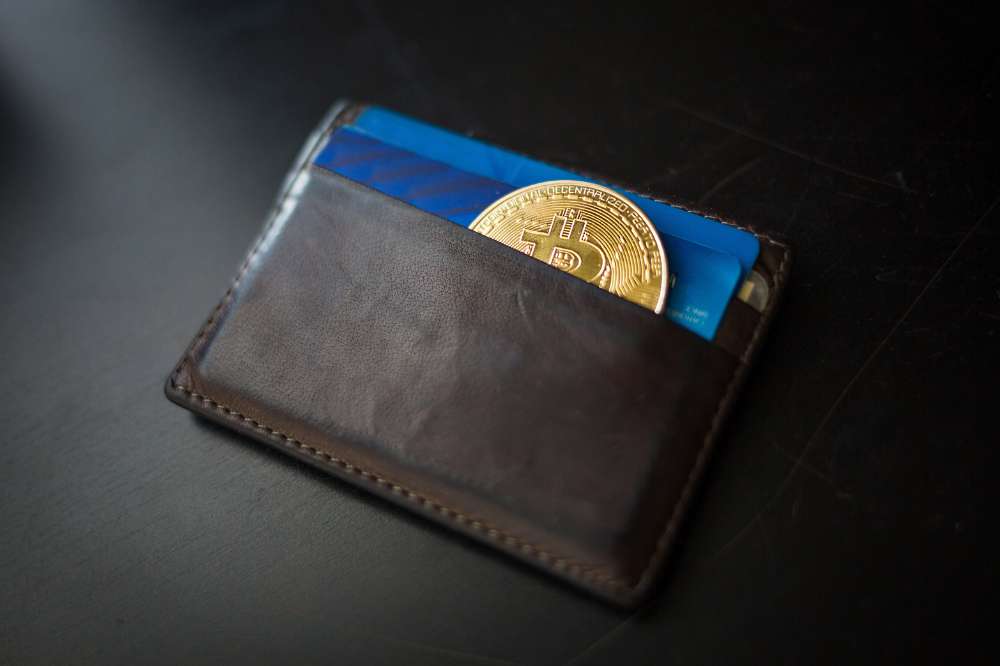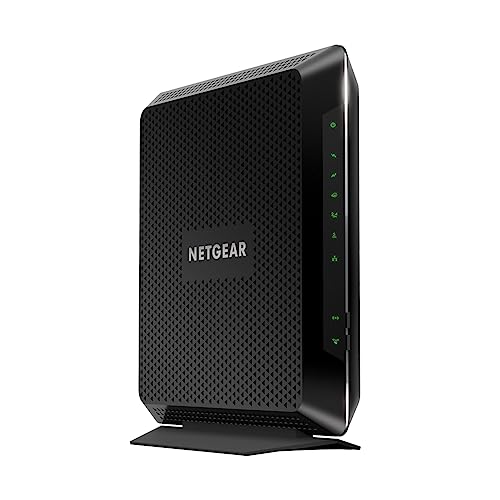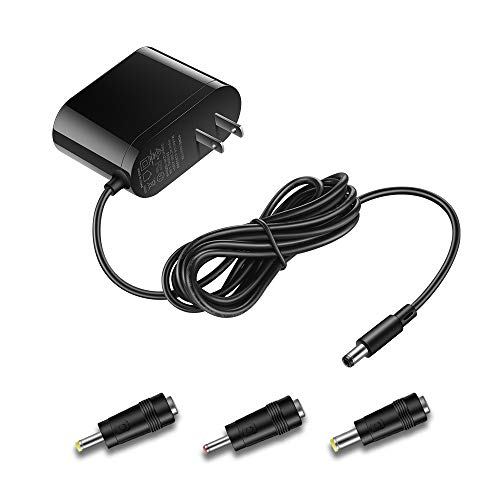In the fast-paced world of cryptocurrency, the security and accessibility of your digital assets are paramount. At the heart of this digital revolution lie crypto wallets, the gatekeepers to your financial sovereignty in the decentralized landscape.
But not all wallets are created equal.
Enter the realm of custodial and non-custodial crypto wallets, two distinct paradigms that define how you manage, access, and safeguard your cryptocurrencies. From convenience to security, each type of wallet offers unique advantages and trade-offs that can significantly impact your crypto experience.
In this deep dive, we unravel the mysteries of custodial and non-custodial wallets, shedding light on their fundamental differences and empowering you with the knowledge to make informed decisions about how you store and manage your digital wealth.
- Compatible with major cable internet providers including Xfinity, Spectrum, Cox and more. NOT compatible...
- [Compatibility] 12V Power Supply Adapter Compatible with Netgear, Linksys, Asus,Motorola, Motorola/Arris...
So buckle up and prepare to embark on a journey into the fascinating world of crypto wallets. Let’s dive in!
What are Custodial Crypto Wallets?

Custodial crypto wallets, also known as hosted wallets, are wallets where a third party, typically an exchange or a financial institution, holds custody of the user’s private keys and digital assets. In this arrangement, users entrust their funds to the custodian, who assumes responsibility for safeguarding and managing the assets on their behalf.
Custodial wallets offer convenience and ease of use, making them popular choices for beginners and casual users entering the cryptocurrency space. Users can access their funds through a user-friendly interface provided by the custodial service, often accompanied by additional features such as trading capabilities and portfolio management tools.
However, the convenience of custodial wallets comes at the expense of control and autonomy over one’s assets, as users must rely on the custodian to maintain the security of their funds.
While custodial wallets may offer insurance and reimbursement policies in the event of theft or loss, users are still subject to the risks associated with centralized services, including hacking, fraud, and insolvency. Therefore, users need to research and choose reputable custodial providers with robust security measures and a track record of reliability.
What are Non-Custodial Crypto Wallets?
Non-custodial crypto wallets, also known as self-custody wallets, offer a stark contrast to their custodial counterparts. Here are some key features and characteristics of non-custodial wallets:
- User Control: Non-custodial wallets prioritize user control and ownership of funds. Users have sole custody of their private keys, which are used to access and manage their cryptocurrency holdings. This decentralized approach ensures that users are fully responsible for the security and management of their assets.
- Security: Non-custodial wallets are often considered more secure than custodial wallets due to the absence of third-party involvement. Since users retain control of their private keys, they are not exposed to the security risks associated with centralized exchanges or custodial services. However, users must take proactive measures to safeguard their private keys and implement robust security practices to prevent unauthorized access to their funds.
- Privacy: Non-custodial wallets prioritize user privacy by minimizing the collection and storage of personal information. Since transactions are conducted directly between users and the blockchain network, there is no need to disclose sensitive information to third parties. This privacy-enhancing feature appeals to users seeking greater anonymity and confidentiality in their cryptocurrency transactions.
- Decentralization: Non-custodial wallets embody the principles of decentralization by enabling peer-to-peer transactions without the need for intermediaries. Users interact directly with the blockchain network, facilitating censorship-resistant and trustless transactions. This decentralized approach aligns with the ethos of cryptocurrencies and promotes financial sovereignty among users.
Pros and Cons of Non-Custodial Wallets
Like custodial wallets, non-custodial wallets offer distinct advantages and disadvantages. Here’s a closer look at the pros and cons of non-custodial wallets:
Pros:
- Enhanced Security: Non-custodial wallets provide users with greater security and control over their funds, reducing the risk of theft, hacks, and loss of assets associated with centralized exchanges or custodial services.
- Privacy Protection: Non-custodial wallets prioritize user privacy by minimizing the collection of personal information and facilitating direct transactions between users and the blockchain network, enhancing anonymity and confidentiality.
- Decentralization: Non-custodial wallets embody the principles of decentralization by enabling peer-to-peer transactions without intermediaries, promoting censorship-resistant and trustless interactions on the blockchain network.
- Financial Sovereignty: Non-custodial wallets empower users with full ownership and control of their funds, enabling them to transact freely without reliance on third parties or centralized authorities.
Cons:
- Responsibility for Security: With great control comes great responsibility. Users of non-custodial wallets are solely responsible for safeguarding their private keys and ensuring the security of their funds, which requires diligence and adherence to best security practices.
- Risk of Loss: If users lose access to their private keys or forget their wallet credentials, they risk losing access to their funds permanently. Unlike custodial wallets, there is no centralized authority to recover lost or stolen assets, emphasizing the importance of securely storing private keys.
- Technical Complexity: Non-custodial wallets may be more complex to use than custodial wallets, especially for novice users unfamiliar with cryptocurrency concepts and technology. Understanding how to securely manage private keys and conduct transactions on the blockchain network requires a learning curve.
- Limited Support: Since non-custodial wallets operate independently of centralized exchanges or custodial services, users may have limited access to customer support or assistance in the event of technical issues or user errors.
Examples and Use Cases of Custodial and Non-Custodial Wallets
To better understand the practical implications of custodial and non-custodial crypto wallets, let’s explore some examples and use cases:
Custodial Wallets: Custodial wallets are commonly used by cryptocurrency exchanges and online platforms to facilitate the buying, selling, and trading of digital assets. Examples of custodial wallets include popular exchange wallets such as Coinbase, Binance, and Kraken. These platforms offer convenient access to cryptocurrency markets but require users to trust them with custody of their funds.
Non-Custodial Wallets: Non-custodial wallets are favored by users seeking greater security, privacy, and control over their cryptocurrency holdings. Examples of non-custodial wallets include hardware wallets like Ledger Nano S, software wallets like Electrum and Exodus, and decentralized wallets like MetaMask and Trust Wallet. These wallets enable users to store their private keys securely and transact directly with the blockchain network, minimizing reliance on third parties.
Conclusion
In conclusion, the difference between custodial and non-custodial crypto wallets lies at the core of cryptocurrency ownership and security. Custodial wallets offer convenience and accessibility but come with inherent risks associated with entrusting third parties with custody of your funds. On the other hand, non-custodial wallets prioritize security, privacy, and decentralization, empowering users with full control over their assets.
As the cryptocurrency ecosystem continues to evolve, the choice between custodial and non-custodial wallets ultimately comes down to individual preferences, risk tolerance, and security priorities. Whether you opt for the convenience of custodial wallets or the security of non-custodial wallets, it’s essential to understand the trade-offs involved and take proactive measures to safeguard your cryptocurrency holdings.
By weighing the benefits and limitations of custodial and non-custodial wallets, you can make informed decisions that align with your financial goals and risk management strategies, ensuring a secure and seamless experience in the world of cryptocurrencies.





